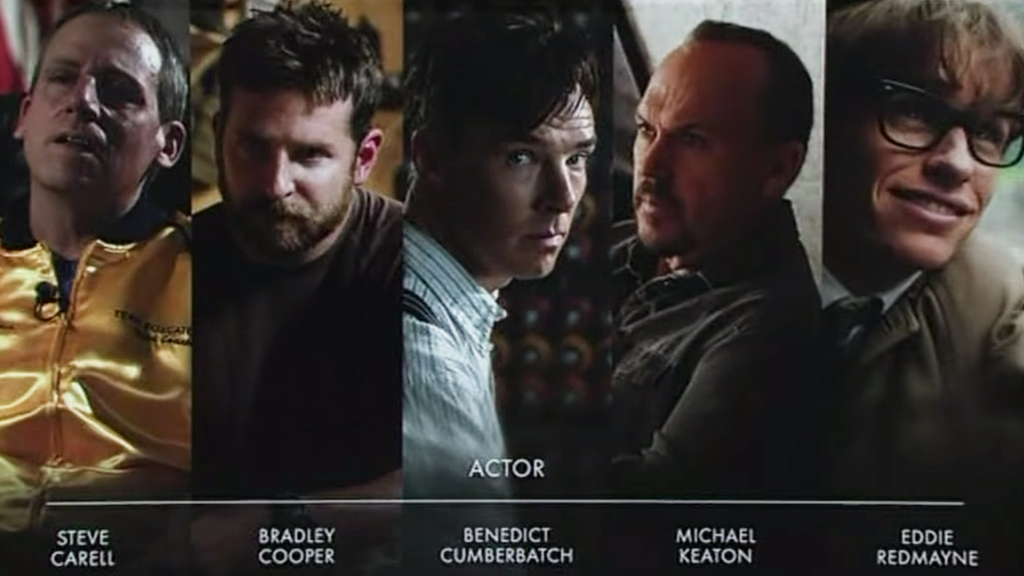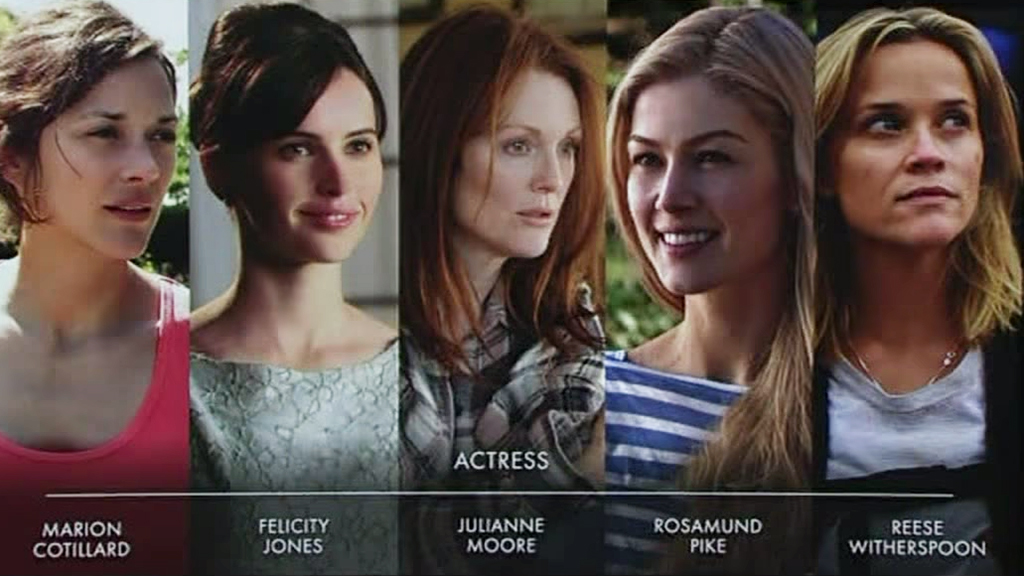#OscarsSoWhite is a deeper problem
 Screenshot
ScreenshotShock and disgust have run rampant on social media after this year’s Academy Awards nominations were announced. But as easy a target as the decrepit, pale Academy voter base is, the voters who chose these candidates aren’t truly the most deserving target of film fans’ ire.
The #OscarsSoWhite hashtag has caught fire as everyone rushes to remind each other just how old and white the Academy Award voters are, together averaging in at the fresh age of 63. That academy voted a class of eight nominees for Best Picture that all are ostensibly stories about male protagonists, and filled every acting nomination this year with white performers. Not a single Best Picture nominee tells a female story, snubbing the likes of critically acclaimed Wild. Meanwhile, one of the best reviewed movies of the year, the Martin Luther King biopic Selma,was shut out besides what seems like a throwaway nomination for Best Picture and Best Song.
But while it’s easy and not totally unfair to point the finger at this Academy for this lack of diversity, that’s far too limiting criticism for a film industry that doesn’t foster such diversity in the first place.

Despite the criticism against the Academy this year, there actually were very few snubs that would have really altered the complexion of this year’s awards class. David Oyelowo’s moving performance as Martin Luther King Jr was wrongfully ignored and, sure, maybe an argument could have been made for Wild getting more attention, but there’s not much else in the way of disappointingly overlooked films. The fact seems to be that in a critically strong year for film, the year’s most oustanding films nearly all focused on stories of white men.
So many of the year’s best films didn’t offer such potential nominees in the first place. These films are seldom actually being made to even warrant the academy’s attention. The Oscars act as more of a reflection of the current film industry. They’re an effect, not a cause.
The Oscars shouldn’t be looked to as some sort of benefactor of social justice. They’ve really never achieved that in a film industry that’s continuously settled for intermittently rewarding single instances of diversity rather than committing to widespread change in the film industry. When arguing that this isn’t a real problem in film, critics always uses the same three or four movies that received Academy recognition as an example of how even-handed the Oscars can be (like 12 Years a Slave winning Best Picture or Kathryn Bigelow winning Best Director for The Hurt Locker) rather than pointing to a longer history of diversity in the Academy’s choices.
This year’s nominations are depressing and the demographic of the Oscars’ voters surely leaves them out of touch with modern audiences, but don’t settle for criticizing just this year’s Academy Awards about the film industry’s whitewash. The same criticism should be just as widespread every time a historical film inaccurately fills its cast with white actors like Exodus: Gods and Kings did; every time we can look at a summer full of blockbuster films repeatedly telling stories of white, male heroes; and every time we can look at an upcoming Oscar season in September and see that we’ll soon end up with an Oscars list as pale as this year’s.
The 2015 Academy Awards are a disappointing indictment of the film industry, but don’t fool yourself into thinking it’s the real problem. The true discrimination runs much deeper than that.




